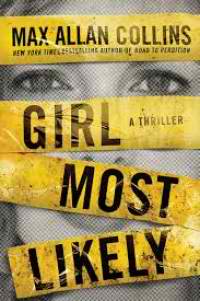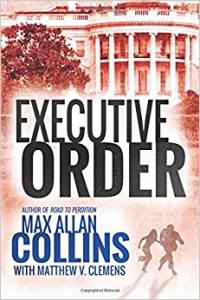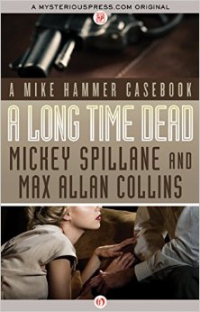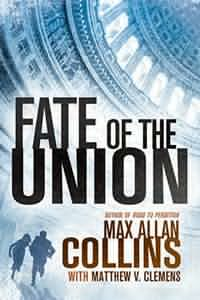Girl Most Likely by Max Allan Collins
 Wednesday, September 18, 2019 at 6:59AM
Wednesday, September 18, 2019 at 6:59AM 
Published by Thomas & Mercer on April 1, 2019
The villain of Girl Most Likely is you, given that part of the novel is written in the second person. That almost never works and this novel is no exception. In this case, the “you” is a murderer, which didn’t seem convincing to me because I know for a fact that I have never murdered anyone.
You meet Sue and ask her not to talk about what happened in the past. She won’t commit to silence, so you stab her to death. That was probably your plan regardless of her answer. But who are you? If you care, you need to read to the end to discover your identity.
The story adopts the third person when it introduces the protagonist, Galena Chief of Police Krista Larson, the youngest female police chief in the country. Her father was a celebrated cop, she broke up with her reporter boyfriend, etc. Krista is a bundle of stereotypes. A high school reunion (Krista’s class) is coming to Galena, minus a woman named Sue, who was murdered in Florida.
After meandering through the first third of the novel, the plot focuses on a female reporter who was once the victim of sexual abuse. The reporter is apparently working on a story about sexual misconduct. She is reunited at the reunion with a man who abused her (the unidentified “you” of the chapters written in second person). The encounter leads to a crime that Krista is called upon to investigate, one that echoes the Florida murder of another classmate.
Krista and her dad solve the mystery, not by piecing together clues in an interesting way but by badgering people who attended the reunion until one of them says something that makes the killer’s identity reasonably clear. That’s an accurate reflection of police work but it isn’t very interesting. And that pretty much sums up my reaction to Girl Most Likely.
I generally like Max Allen Collins’ books — I particularly enjoy what he’s done as a successor to Mickey Spillane — but Girl Most Likely is uncharacteristically dull. Perhaps that’s because it is set in Galena, a city that fails to inspire excitement. Collins tries to work in a couple of action scenes, but they are predictable and do nothing to supply the novel with the energy it lacks.
The relationship between Krista and her father is typical of cop-father, cop-daughter thriller relationships. Neither character has enough pizazz to make me care about them. But they constantly make clear that they love and admire each other, and that is apparently meant to warm a reader’s heart. I prefer meaningful characterization to fuzzy heartedness.
Collins is a capable writer and there are readers who like dull mysteries with sweet protagonists. I’m not in that audience. Girl Most Likely isn’t bad enough to condemn, but I have serious reservations about recommending it to fans of Collins’ better novels or, for that matter, to most crime novel readers.
RECOMMENDED WITH RESERVATIONS
 TChris |
TChris |  Post a Comment |
Post a Comment |  Max Allan Collins in
Max Allan Collins in  Thriller
Thriller 


